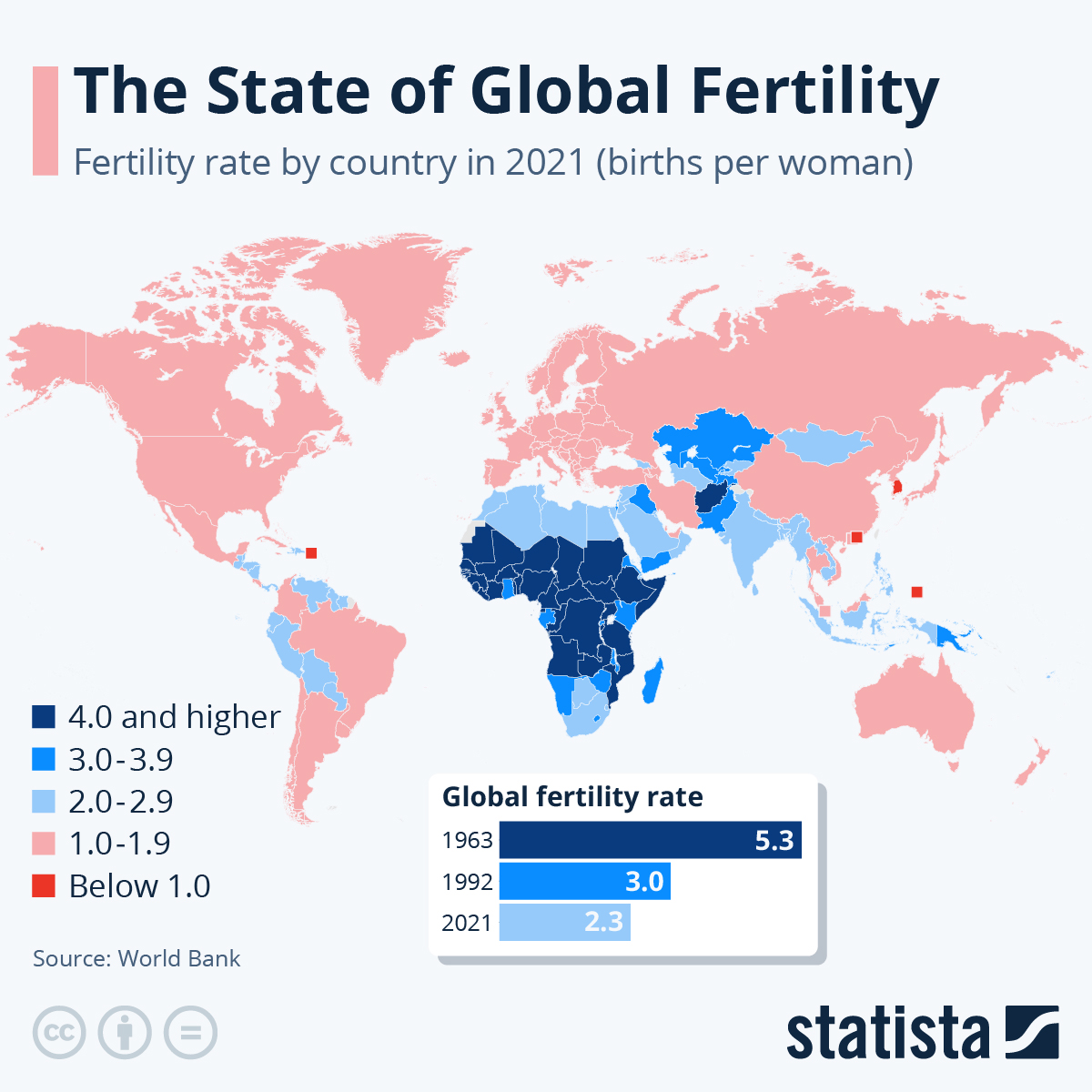When Elon Musk shared a world map charting fertility rates by country, he wasn’t just posting another statistic. He was raising a profound question about the future of civilization. The map, published by Statista using World Bank data, highlights what many have warned for decades: the West is no longer replacing itself.
A Civilization in Decline
The United States, Canada, Europe, Japan, and much of East Asia are shaded in pink and red — signaling fertility rates well below the replacement threshold. By contrast, Sub-Saharan Africa is a sea of deep blue, with birth rates averaging three to four or more children per woman.
This is not simply a demographic curiosity; it is a symptom of civilizational weakness. History testifies that when societies turn away from family and continuity, decline follows. Rome in its later centuries provides a sobering example: as elites abandoned the duty of family, the empire hollowed itself out long before invaders breached its gates. A culture that forgets how to welcome new life has already chosen its end.
Beyond Economics — A Spiritual Crisis
Modern nations have tried to solve fertility decline through economics: subsidies, tax breaks, and incentives. France has long paid women to bear children. Japan spends billions to encourage family growth. Yet the trend continues downward. Why? Because the issue is not economic but existential. As Christ taught, “Man shall not live by bread alone, but by every word that comes from the mouth of God” (Matthew 4:4). Without a transcendent reason to live and sacrifice, families will not form, and children will not come.
Scripture calls children a blessing (Psalm 127:3), not a burden. But the West, in trading faith and family for consumerism and self-fulfillment, has inverted this truth. Where faith erodes, fertility follows. Declining birth rates are not only a biological fact — they reveal a deeper spiritual poverty.
The Global South Rising
In contrast, the nations of the Global South pulse with vitality. Africa’s fertility rates, averaging three to four children per woman, ensure explosive population growth and cultural influence in the decades ahead. The demographic tide all but guarantees migration pressures into Europe and shifts the world’s future centers of gravity from Washington or Brussels to Lagos, Kinshasa, and Delhi. Civilizational strength flows to where life is cherished.
Lucid’s Warning in Demographics
At Lucid, we anticipated this shift. Our 2024 micro-documentary Demographics examined the transformative demographic changes reshaping the West: declining birth rates below replacement, surging illegal immigration, and a widespread reluctance to form families. The film highlighted how these shifts, especially visible in nations like France, are altering the cultural landscape. Through historical perspective and Christian conviction, we argued that only a return to the biblical model — prioritizing marriage and family as the pillars of society — can preserve stability and continuity. Fertility is not just a statistic; it reflects whether a people still believe in God’s design for the future.
A Sobering Takeaway
Elon Musk’s shared chart is not just a statistic; it is a mirror held up to the West’s soul. Nations may excel in technology, finance, or politics, but without new generations, there is no tomorrow. God’s first command to humanity was to “be fruitful and multiply” (Genesis 1:28). To spurn this calling is to walk the path of self-erasure. The true question before us is not merely demographic but spiritual: will the West recover the will to live, rooted in faith, or will its obituary be written by those who still embrace life as a sacred gift?
References
- World Bank Data – Global Fertility Rates
- Statista – The State of Global Fertility
- Lucid Micro-Documentary: Demographics (2024)
Photo by Omar Lopez on Unsplash




Login or register to join the conversation.
Join the discussion
0 comments